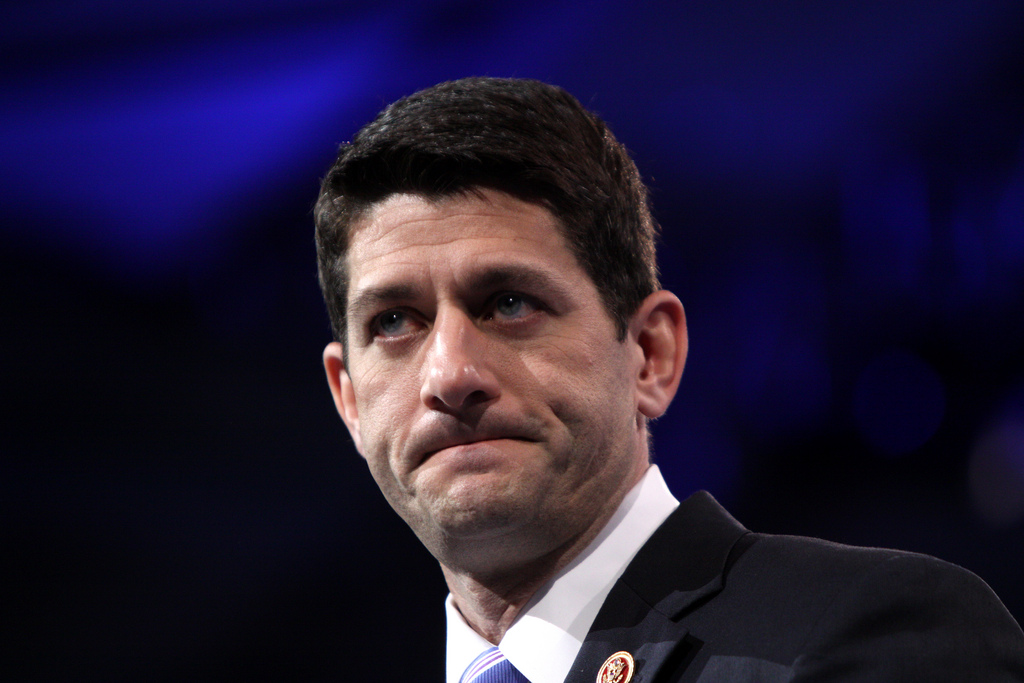R.I.P. Congressional War Power
President Donald Trump has ordered significant military strikes against assets of the Assad regime in Syria.

Published by The Lawfare Institute
in Cooperation With

President Donald Trump has ordered significant military strikes against assets of the Assad regime in Syria. Trump asserted that the use of military force was necessary “to establish a strong deterrent against the production, spread, and use of chemical weapons,” a goal that is “a vital national security interest of the United States.” It is easy to agree that the United States should want to deter nations from using chemical weapons, and it is also reasonable to think that a military response might be a necessary and appropriate measure to shore up international law—and norms—against the use of such weapons. Moreover, the combined actions of the United States, the United Kingdom and France could credibly be regarded as surgical and limited, with minimal risk to American lives and only a modest risk of escalation.
Being low-risk and reasonably justifiable should not be enough, however. The Constitution does not empower the president to conduct military strikes against foreign governments whenever they would advance American national security interests with relatively low risk. The Constitution directs the president to “preserve, protect and defend the Constitution of the United States” and places him as commander in chief of the armed forces of the United States. The president has reasonably been understood to have the necessary authority to repel a sudden attack on the United States, its people, or its forces abroad. But Congress alone has the constitutional authority “to declare war.”
Congress did not authorize the use of military force against the Syrian government. Even the administration did not try to draw on the elastic terms of the 2001 and 2002 authorizations for use of military force (AUMF) to justify the Syrian strikes. Passed in the immediate aftermath of the 9/11 terrorist attacks, the 2001 AUMF gave congressional permission for military action in Afghanistan and against the al-Qaeda terrorist group and its allies wherever they might be found. The 2002 AUMF empowered the president to take military action against the Iraqi government. Together, those resolutions have underwritten military actions from Afghanistan and Iraq, to Yemen and the Philippines, to Somalia and Niger. Publicly, Defense Secretary James Mattis contended, “as our commander in chief, the president has the authority under Article II of the Constitution to use military force overseas to defend important U.S. national interests,” though privately Mattis was apparently more skeptical about the president’s authority to act against the Syrian government without prior congressional approval.
Of course, Article II does not say anything at all about the president’s authority to defend important national security interests. Nonetheless, the Trump administration had earlier pointed to the president’s constitutional authority to act “in the vital national security and foreign policy interests of the United States” to provide the legal basis for air strikes against a Syrian base in 2017. The Obama administration contended that “sufficiently important national interests,” such as “preserving regional stability” and maintaining the “credibility” of the U.N. Security Council, were sufficient to authorize presidentially initiated military action to overthrow the government of Libya, so long as that action was not expected to be too “extensive.” In the cases of Haiti and Bosnia, the Clinton administration pointed to the president’s authority to deploy troops abroad at will as adequate so long as the military operation was expected to fall short of war “in the constitutional sense.” The George H.W. Bush administration made similar claims to justify its ill-fated military adventures in Somalia. Even as the aims and targets of the military operations in the Middle East have evolved over more than a decade, the president has declined to seek—and Congress has declined to provide—a new authorization for the use of force that might provide clearer authority to act against ISIS or against hostile powers in Syria, including the Syrian government itself. Senate Foreign Relations Committee Chair Bob Corker has previously warned that Congress should not “risk undermining the legal foundation for this critical fight” by opening up a partisan battle over proper scope of the international war on terror, but more recently has unveiled a proposed updated AUMF. House Speaker Paul Ryan has resisted bipartisan efforts to revisit the authorization for the use of military force. Plenty of Republican legislators, at least, seem to think the president had ample authority to act on his own without the need for members of Congress to go on record directing the president to take any particular action. As the president pondered the American response to the chemical weapons attack in Syria, Corker himself seemed bogged down in negotiating an updated AUMF in the Senate and waived off congressional action as unnecessary in the case of “surgical” strikes against the Syrian government.
The escalating tensions in Syria are not sudden or unexpected. The United States is not responding to an assault on its own forces in the region. The United States is only claiming to send a signal to the Syrian government and the international community in response to a chemical weapons attack a week ago. In the days following the chemical weapons attack, the United States has had time to present its case to the United Nations, and the president has apparently had time to send out a series of ominous tweets threatening Assad. The president had time to go to Congress as well. House Speaker Paul Ryan and Senate Majority Leader Mitch McConnell had time to move an authorization for the use of military force through their legislative chambers. No one bothered to do so.
As storm clouds gathered, Congress watched as if it were a bystander, irrelevant to national decisions of whether to initiate a military attack against a foreign government. Instead, House Speaker Paul Ryan specifically announced that he “won’t get ahead of the president” and thought that Trump already had whatever legal authority he might need “to do what he may or may not do.”
I have argued before that constitutional crises can be of two types. Crises of operation can occur when the constitutional rules and procedures do not provide the resources to resolve a political conflict. Crises of fidelity can occur when constitutional provisions are regarded as no longer authoritative or binding. Such crises have been exceedingly rare in the United States. In particular, crises of fidelity have been rare because the constitutional text is quite spare, the opportunities for creative interpretations are plentiful, and the desire to keep faith with the Constitution is strong. Better to be an innovative constitutional interpreter than a constitutional apostate.
Nonetheless, faithful and conscientious constitutional actors should do more than pay mere lip service to the text. Congress is abdicating its constitutional responsibilities to determine whether the United States should make war on other nations when it makes no effort to take advantage of the ample time available to it to deliberate on how the United States should respond to the use of chemical weapons by a rogue regime and when it makes no effort to develop a collective response to presidential threats to use military force against foreign governments with which the United States is not already at war. The executive branch is indicating the irrelevance of Congress to the warmaking process when it announces that the president’s Article II authority should be understood to include the power to initiate military force against foreign nations whenever he deems American national interests to be at stake.
Congress has struggled to meet its constitutional responsibilities in this area for quite some time. America’s rise to the status of a global superpower with far-flung military bases and a web of international commitments has put nearly unbearable pressure on the original constitutional design. In the immediate postwar era, de facto presidential leadership in initiating the use of military force abroad was tolerated, and sometimes encouraged, since congressional leaders were often in agreement with the executive branch about how force should be used. When Vietnam exposed the cracks in that interbranch solidarity, Congress struggled to mount an effective response. Once the idea of pulling back from American involvements abroad was rejected, Congress was left only with the half measure of the 1973 War Powers Resolution. The end of the Cold War did not bring with it a reconsideration of America’s international posture. Congress continued to provide the president with a massive array of troops and armaments spread across the globe and available to his command, while giving little by way of guidance or constraint about how such forces were to be used.
In the War Powers Resolution, Congress declared that the president’s Article II authority was limited. Presidents should only be understood to have the constitutional authority to introduce troops into hostilities on his own when faced with “a national emergency created by attack upon the United States, its territories or possessions, or its armed forces.” The constitutional design pointed to the need for “the collective judgment of both the Congress and the President” before the nation embarked on military action. In practice, the system of reporting and consultation set up in the resolution made clear that Congress was likely to tolerate unilateral military action by the president acting alone, so long as the commander in chief avoided getting the nation into a quagmire abroad that might upset voters at home. Over time, presidents have stretched the limits of the War Powers Resolution to the breaking point, claiming adequate constitutional authority to place American troops in harm’s way not only when faced with “a national emergency” that rendered congressional deliberation impossible but also whenever the president thought congressional deliberation might impede the president from advancing “sufficiently important national interests.”
Recent uses of military force by American presidents are increasingly indicating that the exclusive congressional authority to declare war is moribund or perhaps already defunct. How Congress chooses to indicate its assent to the use of military force is insignificant. Whether Congress and the president believe that congressional authorization is necessary to the use of military force is of the utmost significance. If neither branch of government has any interest in adhering to the constitutional scheme for launching military offenses, then it is reasonable to wonder whether a provision of the constitutional text has been effectively written out of our constitutional practice and what the nature of the replacement constitutional order might be. Such a crisis of constitutional fidelity is all the more remarkable if it passes with little public notice or comment and is cemented by the actions of a president widely distrusted by both the mass public and political elites. Even the extraordinarily weak presidency of Donald Trump can lay claim to an apparent constitutional inheritance that allows presidents to initiate wars at will. If the congressional war power is not dead, the actions of Congress and the president suggest it might be on life support. Congress should not be surprised if this president—and future presidents—conclude that the national legislature is irrelevant to the decision of whether the United States should go to war, and act accordingly.


.jpg?sfvrsn=5a43131e_9)


